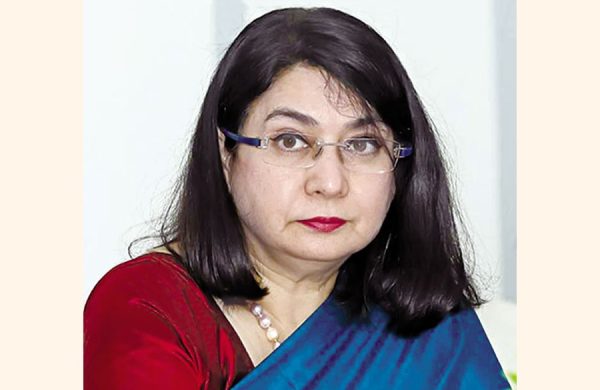Preventing waste crucial for ensuring food security
- Update Time : Monday, October 20, 2025

—Dr Jahangir Alam Khan—
Food is essential for life. Among the basic needs of humans, food holds the foremost position. For this reason, over the past half-century, significant global attention has been given to increasing the production of food grains. Modern technologies have been developed, and the Green Revolution has been implemented.
In 1971, global food grain production was 1.18 billion metric tons. By 2024–25, it had increased to 2.841 billion metric tons. Over this 55-year period, total production increased by 140.75 percent, with an average annual growth rate of 1.6 percent.
Currently, the amount of food grains produced worldwide could feed more than one and a half times the global population. Yet, despite this, food insecurity and malnutrition remain significant issues globally. Approximately 783 million people are currently undernourished.
About one-third of the total population suffers from food insecurity. The reasons include unequal distribution, lack of access, and weak infrastructure. Another critical issue is food loss and waste. Nearly one-fifth of all food produced globally is lost or wasted—amounting to roughly one billion meals per day.
Annually, about one trillion dollars are lost due to food waste. Along with this, the resources used in production—land, water, and energy—are also wasted. Food loss and waste contribute significantly to persistent poverty and hunger. Food waste is prevalent in both developed and developing countries. It is particularly high in warmer countries, where high temperatures increase food spoilage during processing, storage, and transportation.
For food security, reducing food waste is essential. Bangladesh has a warm and humid climate, which makes food spoil more quickly. Traditional methods of food storage are still common, and cold chain systems in transportation are almost nonexistent. Field crops are regularly attacked by pests and diseases, and post-harvest handling—including harvesting, threshing, cleaning, processing, and packaging—is not sufficiently advanced. As a result, food waste is high.
According to the 2024 Food Loss Index report by UNFPA, Bangladesh wastes 14.10 million tons of food annually, which is 32.78 percent higher than the 10.62 million tons reported in 2021. Per capita food waste increased from 65 kg in 2021 to 82 kg in 2024. This level of food waste is higher than in the UK, USA, Japan, China, Russia, and India. For comparison, a person wastes an average of 76 kg in the UK, 73 kg in the USA, 38 kg in Japan, 75 kg in China, 33 kg in Russia, and 55 kg in India.
In this context, Bangladesh urgently needs comprehensive programs to prevent food waste.
Food grain production in Bangladesh has been increasing rapidly. After independence, in 1972–73, the total production was 11 million tons. Fifty-two years later, in 2023–24, it rose to 51.1 million tons—an increase of 364.55 percent, with an average annual growth rate of 2.9 percent. Despite this growth, Bangladesh still depends on imports, requiring about 7 million tons of food grains annually.
Currently, about 31 percent of the population suffers from food insecurity, and 63 percent do not get nutritionally adequate food. This contributes to poverty, hunger, and inequality. A major factor is the enormous amount of food lost during production, transportation, processing, storage, and marketing.
Studies show that 27 percent of food produced in Bangladesh never reaches the table due to post-harvest losses and other wastage. The waste is especially high for perishable products such as fruits, vegetables, potatoes, onions, milk, and fish. Annually, approximately 23 percent of rice, 17 percent of wheat, 27 percent of lentils, 20 percent of bananas, 29 percent of mangoes, 22 percent of potatoes, 30 percent of onions, 27 percent of carrots, 10 percent of tomatoes, 24 percent of leafy vegetables, and 36 percent of fish are lost or wasted. Food waste at home, in restaurants, and during weddings or social events is alarming.
Excessive purchasing, weak food management, lack of cold storage, poor market infrastructure, inefficient transportation, and low public awareness contribute to high food waste. In a country where millions cannot secure their daily meals, such waste appears as luxury and must be curtailed. Otherwise, food security will be jeopardized, financial losses will increase, and the environment will suffer. Addressing food loss and waste requires coordinated efforts by the government, private sector, and civil society. Appropriate action plans are needed, including modern techniques for processing, storage, and transportation, as well as farmer training and awareness programs.
Islam prohibits food waste. The Holy Quran states: “Eat and drink, but do not waste; indeed, Allah does not like the wasteful” (Surah Al-A’raf, 7:31). In another verse, Allah says: “Eat of the fruits thereof when they yield, and pay their due on the day of harvest, but do not waste; indeed, Allah does not like the wasteful” (Surah Al-An’am, 6:141).
The Prophet Muhammad (peace be upon him) also emphasized avoiding food waste. He demonstrated by consuming all food on his plate, even licking his fingers, setting an example for his followers. Wasting food, therefore, disregards divine blessings.
Currently, food waste has become a national problem in Bangladesh, while the poor struggle to secure two square meals a day. Hunger causes immense suffering, deepens poverty, and increases malnutrition and social inequality. For religious, humanitarian, economic, and social reasons, food waste must be reduced. Appropriate policies and strategies must be implemented.
————————————
Author: Agricultural Economist


















